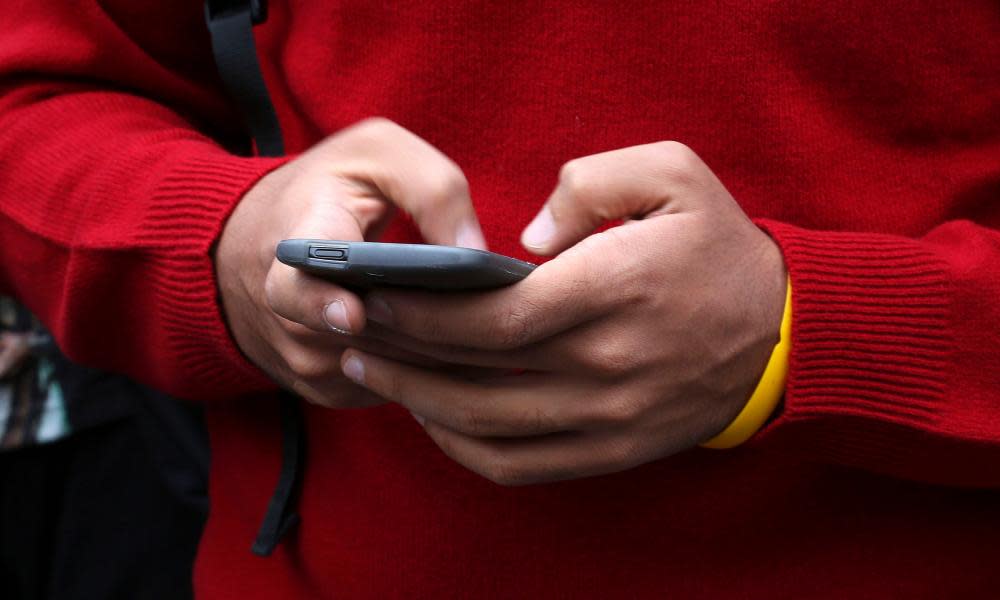Of course parents have a right to spy on their kids | Barbara Ellen

A British father, digital product manager Nick Herbert, has invented an app, ReplyASAP, because his 13-year-old son wasn’t responding to his calls or texts.
The app takes over a smartphone screen, locking the phone from further use and sounds an alarm that only stops when the recipient replies by text. Parents can tell when the child has seen a message or if the phone is turned off. The app is available to download and costs from 99p to send messages to one person. It sounds like an invasion of privacy and the latest attempt by overbearing, distrustful parents to track and control their teenage progeny. But this is fair enough – it serves the little sods right for not replying.
Mobile phones are usually bought by parents primarily for safety reasons, but teenagers have “other priorities”. Sometimes, it’s perhaps an entirely reasonable lack of interest in anything that “boring adults” have to say.
However, mobiles have also long been employed as key ammo in the teen arsenal in the ongoing war against parental interference in their otherwise sensational social lives. Thus, texts and calls are ignored, with the teen pretending to have missed them or blatantly ignoring them. At which point parents must, like pathetic, desperate, bargain-bin Bond villains, stroke their chins and consider apps such as “ReplyASAP”, which sounds like an alarmed wheel clamp, but for phones.
It should be pointed out that Herbert’s son wasn’t doing anything wrong – he was merely distracted by video games. Most teenagers wouldn’t be doing anything wrong, but that’s not the point. While there are wider concerns about things such as ReplyASAP being used by adults to control and abuse partners, makers can’t really be held responsible for their apps being misused. And where kids are concerned, it’s all about parental access and information. Parents not only have a right, they also need to know that their children are safe. It’s this need, not the right, that I believe morally overrides the child’s entitlement to privacy. Anyone who doesn’t agree with me perhaps needs to experience the gut-plummeting horror of not being able to locate their child in the small hours, long after they were supposed to be home.
Some people might look at the growing market serving the culture of parental paranoia and view it as an extension of micro-managing “helicopter parenting”, while also despairing at the breakdown of trust and communication between some parents and their kids. They might ask: “Why don’t you just talk to your child?” Looking at the array of products that are available, you can appreciate the unease. There are apps allowing parents to lock children’s phones remotely, even apps that spy on everything that the child does on the phone.
That last sort of app in particular sounds like it goes too far but something such as ReplyASAP seems reasonable – how else is a parent supposed to respond to being casually (or deliberately) phone-blanked? Sometimes it’s not enough to say: “Talk to your child!” Often, the problem isn’t that parents aren’t talking to their children – it’s that, for whatever reason, the children don’t feel like talking back.
Then there are those parents who contribute to the problem – making beleaguered troubleshooting parents feel like control freaks and failures. Over the years, I’ve noticed a somewhat infuriating and pious attitude, particularly from parents of younger children, an unsaid judgment of: “You need to develop trust with your child, like I will when the time comes, because, fundamentally, I’m a better parent than you.”
Maybe they are and good for them. Or maybe as parents of relatively biddable younger children, they’re a little naive and yet to realise that the teenage zone can be a parenting game-changer, one where a parent-friendly phone app could come in pretty useful.

 Yahoo News
Yahoo News 
